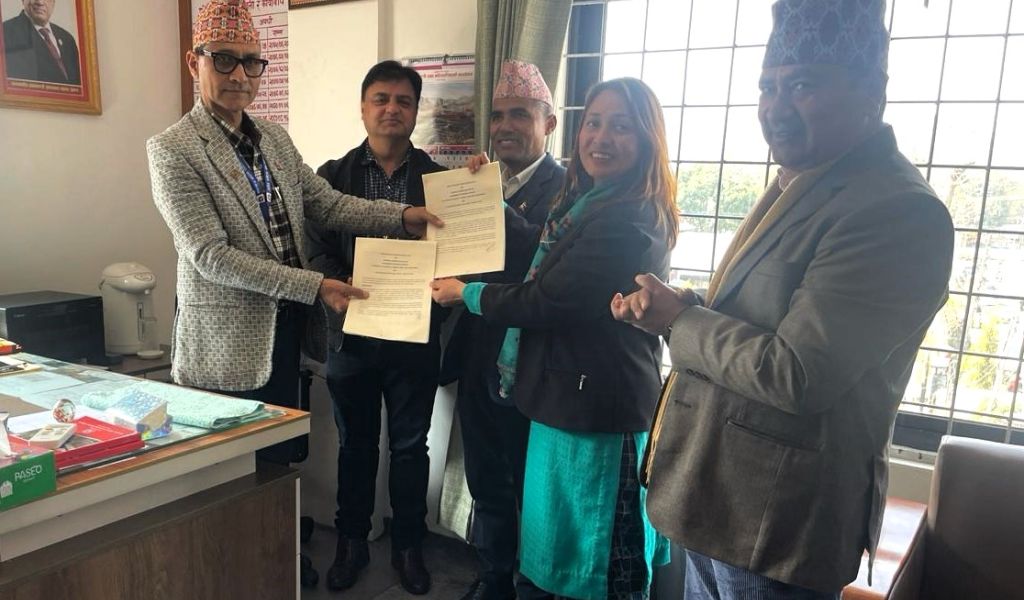RECOFTC Nepal partners with Gandaki Province for sustainable forest management

RECOFTC Nepal and the Ministry of Industry, Tourism, Forest, and Environment (MOITFE), Gandaki Province have entered a 10-year Memorandum of Understanding (MoU) to collaborate on policy development, capacity building and governance in the forestry sector and forestry-based livelihoods. This partnership is designed to address environmental and forestry challenges while fostering prosperity through forest and biodiversity conservation in Nepal’s Gandaki Province, in line with the country’s federalization efforts, especially within the forestry sector. "This MoU lays a strong foundation for future collaboration, focusing on the creation of regulations and procedures for sustainable forest management," stated Ram Chandra Kandel, MOITFE’s Secretary of Forest and Environment.
A primary focus of this collaboration will be on providing technical input and capacity building. MOITFE will take the lead in developing manuals, guidelines and working procedures for sustainable forest management, biodiversity conservation, watershed management, and climate change adaptation and mitigation. RECOFTC Nepal will provide technical support to facilitate this process.
Additionally, the partnership will aim to strengthen existing practices, foster innovation, and enhance the capacity of both the ministry and its subordinate organizations, as well as community-based natural resource management groups, across various forestry-related fields.
Emphasizing knowledge sharing and exchange, RECOFTC Nepal and MOITFE will work together on the sharing and exchange of information, learnings, documentation, research and findings, involving relevant educational institutions and universities. They will also seek to mobilize resources by jointly developing proposals and exploring funding opportunities for projects that address pertinent issues in Nepal's forest sector.
MOITFE will collaborate with partners to identify key environmental and forestry issues and opportunities for growth in the industries related to forest-based timber and non-timber forest products. It will also explore eco-tourism, focusing on creating new employment opportunities and ensuring environmental protection through sustainable forest management practices.

